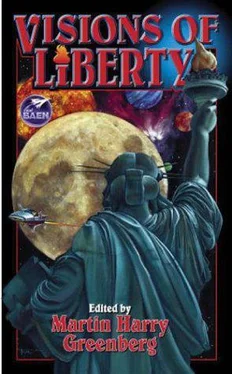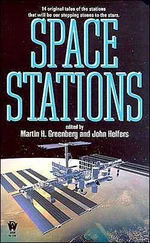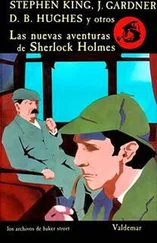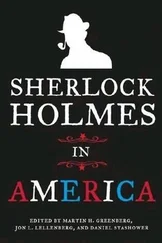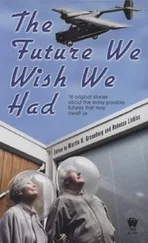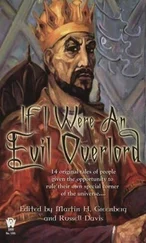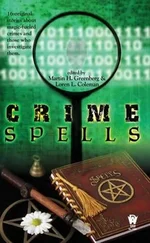So the government of the United States has grown, slice by unnoticeable slice, till it bears scant resemblance to the government at the country’s birth.
Perhaps there is some other way to put a government’s use of force into a straitjacket from which it cannot escape. To the best of my knowledge, no one has ever come up with a convincing, workable proposal along these lines.
As Ayn Rand put it in The Fountainhead : “The only way in which we can have any law at all is to have as little of it as possible. I see no ethical standard by which to measure the whole unethical concept of a State, except in the amount of time, of thought, of money, of effort and obedience, which a society extorts from its every member.” [1] Ayn Rand, The Fountainhead (Plume, New York, 1994), pp. 101–102
If the initiation of force is unethical, then it logically follows that government, as we know it, is also unethical. But that, of course, does not answer the question: Could a society without government actually work? If it’s hard to imagine a world in which a 4 percent income tax is unthinkable, it’s much harder to imagine how a governmentless society could avoid breaking out into a civil war, or simply degenerating into chaos.
That’s a common view; after all, the word “anarchy” is generally used to mean “chaos in the absence of government.” But that’s to assume, mistakenly, that government is the source of law and order.
On January 24, 1848, the California gold rush began. But it took eighteen years for the U.S. Congress to enact a mining law to regulate such discoveries. Meanwhile, gold production in California boomed. How could that have happened without a governmental framework to recognize mining claims, register titles, and regulate disputes?
The miners created their own. They established districts, registries, procedures for establishing and registering a claim and buying and selling claim titles, and a system for resolving disputes. Officers were usually elected, including the recorder of claims. Their private arrangements were recognized in California state courts; and Congress’s 1866 statute “explicitly noted that all explorations for minerals would be subject to those ‘local customs or rules of miners in the several mining districts’ that were not in conflict with the laws of the United States.” [2] Hernando de Soto, The Mystery of Capital (Basic Books: New York, 2000), pp. 146–147
This is just one of many historical examples of what Friedrich Hayek calls “spontaneous order,” demonstrating that neither government nor even leaders are needed for order to appear.
So perhaps Freelandia is possible after all. And thanks to the rich imagination of science fiction authors, we can visit a plethora of Freelandias.
Although there’s a strong individualistic streak within science fiction, until recently very few stories were set in a completely free society. One reason, perhaps, is that all fiction thrives on conflict and a truly free society is so peaceful that there’s not very much to write about. So in stories like Eric Frank Russell’s classic “…And Then There Were None,” the conflict comes from outside, in the form of invaders from an authoritarian empire. (You’ll find this story—and some other classics of this genre—in this book’s companion volume, Give Me Liberty , also published by Baen Books.)
Another example is James Hogan’s (in my opinion) sadly neglected Voyage From Yesteryear. L. Neil Smith has been very prolific in this area, two of his novels, The Probability Broach and Pallas , winning the Prometheus Award for Best Libertarian Fiction. In his most recent book, Forge of Elders , humans meet aliens who are, horror of horrors, capitalists!
Here in this volume are nine more visions of liberty, all set in societies without governments that work. As you’d expect from the fertile minds of science fiction authors, each is very different from the others.
They are not Utopias. Like real life, there’s pain and suffering, as one story here (I won’t tell you which one) tragically shows us.
And there are visions of how, in the words of Aristotle, life could and should be. A cornucopia of Freelandias that I hope inspire and entertain you as they have me.
THE UNNULLIFIED WORLD
by Lloyd Biggle, Jr.
The world was named Llayless. Its principal community—in fact, its only community of any size—was a desert mining center named Pummery. A number of narrow-gauge electric railway lines left Pummery through tubes built to protect their tracks from the swirling sands. When they reached the steep slopes of the surrounding mountains, they emerged to become cog railways.
At one of the railheads, swinging down from the single passenger car that was attached to an interminable string of empty ore cars, Birk Dantler encountered a sign that announced Laughingstock Mines. A short distance beyond it, he found a tiny town nestled amidst the clutter of the mining operation. There were machines to load ore into the railway cars. Farther up the slope, there were machines extracting ore from the mountain. Other machines were bringing ore to the railhead. The town was little
more than a spread of small worker’s cottages except for a neat, prefab building that housed the mining offices, and, standing next to it, another prefab building that was, unmistakably, a school.
All of this represented a substantial capital outlay for a mining claim on a remote world, which meant that the mines collectively known as Laughingstock were productive enough to provide that capital.
Dantler went directly to the mining office and asked a clerk for information. The clerk looked at him narrowly. “You got a reason for being here, fellow?”
Dantler presented his credentials. The clerk glanced at them and winced. “GBI? You’re a Galactic Bureau of Investigation Officer? What’s the Inter-World Council want with us?” When Dantler did not answer, he shrugged and grinned. “Your credentials say anyone who doesn’t cooperate with you will be deported instantly, and that’s reason enough to cooperate. You must know personally all of the many skeletons in the Llayless Mining Corporation’s closets to be able to pry a document like that out of it.” He returned the credentials. “What is it you want to know?”
“Nothing complicated, I’m sure. Where is the mine called Last Hope?”
“That’s fairly complicated until you get through the Laughingstock diggings. After that there’s a path. I’d better draw you a map.” He went over it with Dantler, and when he was satisfied that his directions were clear, he leaned back and scrutinized Dantler’s energy-charged form, taut face—no one had ever called him handsome—and neat, conservative dress. “You prepared for a long walk?” he asked.
“Isn’t there any transportation?”
“There are a couple of pack mules, but they’re kept on the other side of the mountain. Figure on a long walk.”
“How do they bring the ore out?”
“Slowly and with great difficulty. When they’ve accumulated enough, they load the two pack mules and fill two or three handcarts. All the men they have take the day off and haul ore. The Llayless Mining Corporation built them a short siding off our railway line, and it keeps an ore car parked there. When they get it filled, the Corporation hauls it away and leaves an empty for them. That’s as much as it’s willing to do for a marginal operation. The men at Last Hope confidently expect the vein they are working to get richer instead of playing out as most marginal mines do. All miners are optimists.”
Then he leaned over his desk to look at Dantler’s feet. “At least you’ve got sturdy shoes. As I told you, it’s a long walk. I’ve never tackled it myself, no reason to, but those who have say it’s a good ten miles, and half of that is a steep climb up to the pass. It’s best to make a two-day trip of it, and you have to figure on an uncomfortable night. There’s no hotel or bed and breakfast place—no houses at all, in fact. And you’ll be lucky if they can provide you with a sleeping bag, but you’d be an idiot to try to find your way back here in the dark. You got urgent business with the Last Hope?”
Читать дальше
